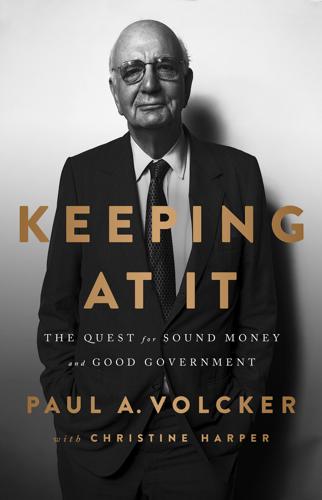
Keeping at It: The Quest for Sound Money and Good Government
by
Paul Volcker
and
Christine Harper
Published 30 Oct 2018
August 9, 1974 Nixon resigns, Gerald Ford becomes president. September 11, 1974 Volcker named senior fellow of the Woodrow Wilson School. August 1, 1975 Volcker becomes New York Federal Reserve Bank president. December 27, 1977 President Carter nominates G. William Miller to replace Arthur Burns at Fed. July 15, 1979 Carter’s “malaise” speech. July 19, 1979 Carter names Miller to replace Michael Blumenthal as Treasury secretary. August 6, 1979 Volcker replaces Miller at Fed; Miller becomes Treasury secretary. August 16, 1979 Board raises discount rate to 10.5 percent from 10 percent. September 18, 1979 Board raises discount rate to 11 percent, but three of the seven members dissent: Charles Partee, Nancy Teeters, Emmett Rice.
…
Attacking Inflation rising 13 percent a year: Clyde H. Farnsworth, “Prices Rose Sharply Again in May, Spurred by Increasing Costs of Fuel,” New York Times, June 27, 1979, 1, https://www.nytimes.com/1979/06/27/archives/prices-rose-sharply-again-in-may-spurred-by-increasing-costs-of.html. and made a speech: Jimmy Carter: “Address to the Nation on Energy and National Goals: ‘The Malaise Speech,’” July 15, 1979. Online by Gerhard Peters and John T. Woolley, American Presidency Project, http://www.presidency.ucsb.edu/ws/?pid=32596. was not confidence building: Indeed, by the end of the week, on Friday, July 20, the Fed had to raise the discount rate half a percentage point to 10 percent and intervened in markets to support the dollar.
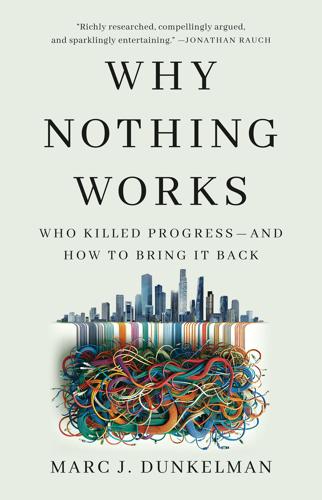
Why Nothing Works: Who Killed Progress--And How to Bring It Back
by
Marc J Dunkelman
Published 17 Feb 2025
When Saigon fell, few doubted that the Pentagon had gotten in over its head. The oil crises undermined faith in America’s economic machine.83 Cities that had been rioting in the late 1960s appeared to be decaying through the 1970s—with New York, in particular, edging toward bankruptcy. In the years that preceded what would be (mis)remembered as Jimmy Carter’s “malaise” speech, the public shared a notion that the country, led by tired institutions, was in decline.84 Even the great exponents of the Hamiltonian New Deal were demanding a change. Arthur Schlesinger, who had venerated Franklin Roosevelt in an epic trilogy before serving as special assistant to John F.
…
Michael Kazin, What It Took to Win: A History of the Democratic Party (New York: Farrar, Straus and Giroux, 2022), 252. 82. Martha Derthick and Paul J. Quirk, The Politics of Deregulation (Washington, DC: Brookings, 1985), 8–13. 83. Joshua Zeitz, Building the Great Society: Inside Lyndon Johnson’s White House (New York: Viking, 2018), 312. 84. David French, “The Wisdom and Prophecy of Jimmy Carter’s ‘Malaise’ Speech,” New York Times, February 23, 2023. 85. Schulman, The Seventies, 47–48. 86. Kazin, What It Took to Win, 257–263. The TVA’s own David Lilienthal, who had been preaching the potential of planning and development around the world since his success in the Upper South four decades earlier, was dismissed in favor of a development ethos centered on the notion that “small is beautiful.”
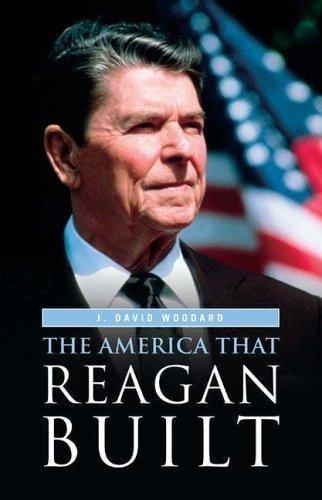
The America That Reagan Built
by
J. David Woodard
Published 15 Mar 2006
It is impossible to find a turning point in an election that led to a forty-ninestate landslide. Michael Barone might be right; maybe the election was over in June. What Reagan understood is that the American people craved something bigger in their history and national memory than Gerald Ford’s evacuation of Saigon or Jimmy Carter’s malaise speech. When the fifty-six Americans were held for ransom by Khomeini’s Iran, the press said it was ‘‘America held hostage.’’ By contrast the D-Day story was about America as ferocious liberators, not backroom barterers. Almost half the voters had made their decision at the beginning of the election year, and only one-fourth waited for the televised debates to decide.20 Reagan gained 59 percent of the popular vote, a record 525 electoral votes, losing only Minnesota and the District of Columbia.
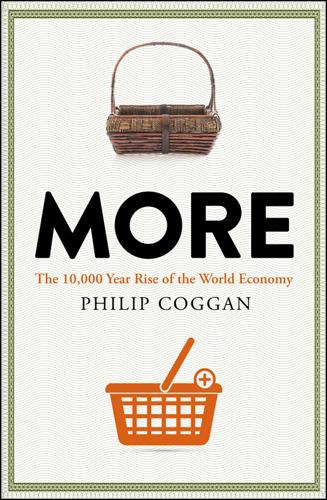
More: The 10,000-Year Rise of the World Economy
by
Philip Coggan
Published 6 Feb 2020
It had caught fire many times before but this incident caught public attention. See http://edition.cnn.com/2008/TECH/science/12/10/history.environmental.movement/index.html 85. Donella Meadows, Dennis L. Meadows, Jorgen Randers and William W. Behrens III, The Limits to Growth 86. “Examining Carter’s ‘Malaise Speech’, 30 years later”, NPR, July 12th 2009, https://www.npr.org/templates/story/story.php?storyId=106508243 Chapter 13 – Central banks: money and technocrats 1. This chapter is based on an Economist briefing, written by the author, “The history of central banks”, April 27th 2017. 2. L.
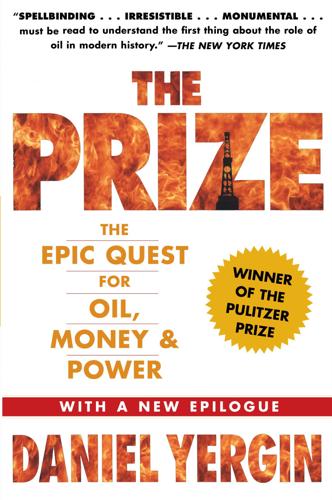
The Prize: The Epic Quest for Oil, Money & Power
by
Daniel Yergin
Published 23 Dec 2008
But in the speech he delivered in July to a distraught nation on America's "crisis of confidence," Carter announced his own plan to make 2.5 million barrels per day of synthetic fuels by 1990, primarily out of coal and shale oil. He had originally wanted to propose 5 million barrels per day, but had been talked out of it. Though he did not use the word, his address became known as Carter's "malaise" speech. Carter also wanted to make changes in his own Cabinet, and in particular, to force the resignations of two of its members, Treasury Secretary Michael Blumenthal and Health Secretary Joseph Califano. His political advisers, Hamilton Jordan and Jody Powell, had convinced him that the two Cabinet officers were disloyal.
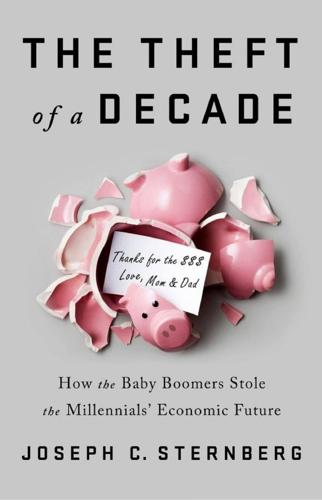
The Theft of a Decade: How the Baby Boomers Stole the Millennials' Economic Future
by
Joseph C. Sternberg
Published 13 May 2019
Nowadays we tend to associate Boomers with a long-bygone era of suburbia, Leave It to Beaver, and the lifetime factory job. But that was their youth, and the main adult beneficiaries of that economy were the Boomers’ own parents. By the time the Boomers were young adults, America was suffering through bouts of stagflation, urban riots, gas lines, and President Jimmy Carter’s infamous “malaise” speech. That doesn’t let the Boomers off the hook for their bad decisions over the past generation, but it offers some important context. Many of their worst economic policy mistakes in the years since are best understood as failed attempts to grapple with the changes they were forced to live through.
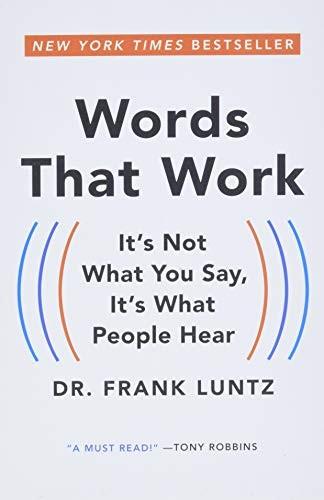
Words That Work: It's Not What You Say, It's What People Hear
by
Dr. Frank Luntz
Published 2 Jan 2007
W., 10–11, 35–36, 46, 62, 82, 83, 94, 110, 162 Bush, George W., xi, 5, 13, 22, 29, 38, 51–52, 82, 83, 84n, 93, 110, 122, 124, 125n, 163, 190, 196, 199, 203, 208, 211, 212, 219–20, 280 “bring it on” comment of, 110–12 National Guard memos and, 67, 68 Social Security and, 169, 170, 171, 243, 255 Caddell, Patrick, 73, 120 Caesar, Sid, 34 Calgon, 19 California gubernatorial recall, 271–78 campaign, 56 “can-do spirit,” 248–49 capitalism, 138–39, 283 Capital One, 118, 202 Carlson, Buckley, 147 cars, 202, 214, 244, 252, 259, 285 Carter, Jimmy, 23, 73, 125–26, 162 “malaise” speech of, xiv, 120–22 Carville, James, 27 “casual elegance,” 256 cell phones, 137–38, 202 cereals, 8, 11, 17, 20, 104–5 “certified,” 136, 259 challenge, 60 change, 219–20 Cheerios, 104–5 Cheney, Dick, 109–10, 128, 203, 219 Cherny, Andrei, 112 Chesterton, G. K., 7 “Chicano,” 65 children, 44–45 Churchill, Winston, 1, 220 Clairol, 26 clichés, 56, 95 Clinton, Bill, 10, 27, 52, 73, 83, 92, 93, 121, 150, 156n, 157, 162, 163, 219, 221, 222, 255 impeachment of, 289–95 Clinton, Hillary Rodham, 43–44, 82, 92, 211 Coca-Cola, 9, 11 Cochran, Johnnie, 108n Coelho, Tony, 157–58 Cohen, Nick, 71 “colored,” 63–64 common sense, 199, 210–11 communication, xiii, xxi, 180 rules of, 1–33, 172–77, 182; see also specific rules see also language community, 209–10 comprise, 69–70 Comstock, Barbara, 84 “conservation,” 167, 252 consistency, 11–13, 182 immigration debate and, 174 context, 26–27, 29, 34, 38, 39, 40, 54, 113, 163, 166, 187 definitions and, 45–48 immigration debate and, 177 labor issues and, 140–41 Contract with America, xii, xvii, xviii, 31, 149–59, 246–47 convenience, 213–15 “hassle-free” experience, 138, 196, 202, 213, 244–45 Coolidge, Calvin, 7 Coors Light, 9 corporate language, xx–xxi, xxii, 127–48 aspirational, 18 simplicity in, 5–6 unfamiliar words in, 38–39 see also advertising language corporations, 215–17 accountability of, 136, 146–47, 247–48, 286 big, 200–202 CEOs of, 94–98 Corsi, Jerome, 84 Corzine, Jon, 247 credibility, 8–11, 18, 72, 79, 80, 91, 102, 113, 117, 118, 124, 139, 163, 182, 261 Contract with America and, 150, 156, 158–59 immigration debate and, 173–74 of Kerry, 8–9, 85, 86, 88 labor issues and, 141–42, 143 “credit unions” versus “banks,” 132–33 Crest, 19 crime reduction, 47, 178 crisis, 60–61, 121 Cromwell, James, 81–82 “culture of,” 262–63 Cunningham, Randy “Duke,” 150 Daily Kos, 68 Daschle, Tom, xiin Davis, Gray, 271–78 Dean, Howard, 66, 68, 125 “scream” of, 122, 124–25 “death tax,” 53n, 164–66, 282 Deaver, Michael, 29 De Beers, 19 “decisive force,” xiv–xv defining policy issues, 45–48 definitions of words, 49–70 DeLay, Tom, 150 Dell, 8, 28, 39 Democrats, xi–xiii, xviii, 27, 31–33, 38, 61, 68, 162, 191, 211, 216, 247, 263, 280 Contract with America and, 151–52, 157–58, 159 environmental issues and, 167 “fairness” and, 207, 208 and role of government, 212–13 Social Security and, 171 “values” and, 217–18 “deny” versus “not give,” 159, 288 “détente,” xv–xvi dial sessions, 74, 78–80, 205–6, 207 Dodge, 20 Dole, Bob, 163, 198, 222 dork, 59 dough, 57 Dreier, David, 23 Droga, David, 98 Drudge Report, The, 68 Dukakis, Michael, 62, 84 Dulles, John Foster, xv–xvi dumb, 59 “eavesdropping,” 288 education: Americans’ level of, 5, 38, 184–87, 283 school choice and, xix–xx, 253, 287 Edwards, John, 218 “efficient” and “efficiency,” 240, 252–53 Eisenhower, Dwight D., 7, 82, 160–61, 162, 220 Eisenstein, Sergei, 40 “electronic intercepts,” 288 e-mail and texting, 6, 55–56, 188–89 emotions, 206, 272 employees, 226–27 asking for a raise or promotion, 231–32 energy industry, 35, 167–69, 285 environmental issues, 166–69, 252, 285 “estate tax,” 164–66, 282 expectations, 18, 80, 91 labor issues and, 142 exurbia, 192–96, 209 ExxonMobil, 35 Fabrizio, Tony, 149 factoid, 69 Fahrenkopf, Frank, 129–30 fairness, 207 family values, 217–18 “financial security,” 261 Firstenberg, Jean Pickler, 108 fitness industry, 248 focus groups, 74–78, 79, 86, 87, 88, 112, 115n, 152, 205 Ford, Bill, 101–2 Ford, Gerald, 125, 162 Ford, Harold, Jr., 21–23 Ford Motor Company, 101–3 “foreign,” 284 “freedom,” 207 free market economy, 139–40, 208, 282–83 fulsome, 69 future, 96, 219–20 Gamble, James, 12 “gambling” versus “gaming,” 129–31 Garthoff, Raymond, xvi Gates, Bill, 38, 216 gay, 57–58 geek, 59 Gelbart, Larry, 34n gender, 30, 41–44, 190–91, 223, 229–31, 258 Genentech, 227 General Electric (GE), 35, 97, 99, 113n, 118–19, 250 General Mills, 20, 105 General Motors (GM), 102, 103 Gephardt, Dick, xiin Geraghty, Jim, 68 Germond, Jack, 126n Gingrich, Newt, xiin, 5, 24, 47, 82, 124, 149n, 150, 151, 152, 156, 158, 159, 160n, 166, 262 Giuliani, Rudy, xii, xvii, 82, 90, 178, 183, 200, 258 “globalization,” 282 Goldberg, Rube, 50 Goldwater, Barry, 116, 122–24, 162 Gore, Al, 5, 9, 10, 21–22, 23, 52, 65, 122, 124, 163, 221 Gore, Tipper, 9 government, 279–80 accountability of, 225–26, 246–47 agencies and programs of, 36–37 value from, 212–13 grocery stores, 214, 244 Hagel, Chuck, xiin Halliburton, 128 Hannity, Sean, 23, 82 happiness, 199–200 Harding, Warren G., 26, 38, 222 “hassle-free,” 138, 196, 202, 213, 244–45 Hatch, Orrin, 94 health care, 140, 185, 211, 253, 281, 287 Medicare, 29n, 159–60, 251, 287 medications, 95–97 “patient-centered,” 254 Hebrew National, 15, 28 Helprin, Mark, 222 Hewlett-Packard, 215 Hilfiger, Tommy, 257 Hispanics, 64, 65, 175 Hitchcock, Alfred, 53 Hollywood, xi–xiii, xxi, 106, 200, 219 Honda, 252 “honest data,” 135–36 “housekeeper,” 267 Howard, David, 63 HSBC Bank, 215 Huffington, Arianna, xi, xii, xiii, 68 Hughley, D.
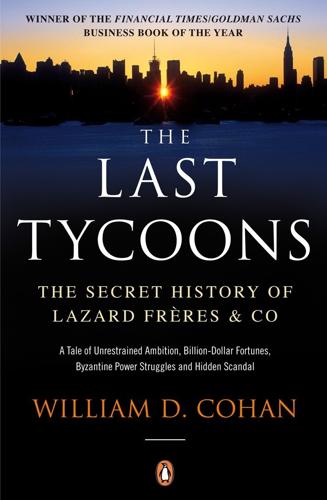
The Last Tycoons: The Secret History of Lazard Frères & Co.
by
William D. Cohan
Published 25 Dec 2015
Felix then added an unfavorable comparison between New York's now-solved fiscal problem and the burgeoning one in Washington: "If the President loses this fight, if, collectively, we cannot create the climate to help him to win, the result will not be noteholders with a moratorium imposed on them or a wage freeze on the unions, but it could be the end of a form of government which, since the days of the French Revolution, had done more for people than any other system ever invented. There will be no winners or losers then, simply the history of another nation that was unable to count its blessings and lost sight of its values." Felix made these comments almost six months to the day before Carter's infamous "malaise" speech to the American people. Felix gave another interview, also in his "modest, somewhat cluttered office" in Rockefeller Center, in February 1979 to W, the fashion bible, just as his MAC responsibilities appeared to be ending. His reflections about his public tenure were a mixture of pride, melancholy, and pure ego.
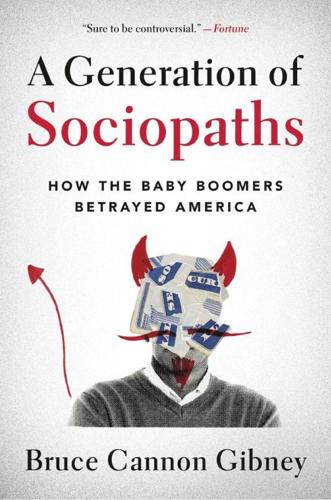
A Generation of Sociopaths: How the Baby Boomers Betrayed America
by
Bruce Cannon Gibney
Published 7 Mar 2017
Would it be more pleasing to frame the coming struggle in terms either more positive or more abstract, a “Struggle for Society” or a “War on Sociopathy”? For many, yes. But palatability is no guarantee of practicability. Positive campaigns take decades to succeed, which America does not have. The record of purely positive campaigns is decidedly mixed in any event: Jimmy Carter tried the sermonizing approach in his Malaise Speech, and we saw how that worked out. Even when positive campaigns do work, they tend to have negative aspects. Civil rights were as much a campaign against bigotry, slavery, and a literal war on the South, as they were for justice and freedom. As for abstraction, a “War on Sociopathy” would probably go the same way as other wars on abstractions like poverty and drugs—pure concept is rarely electrifying, and anyway there’s always something tangible behind the scrim of theory.
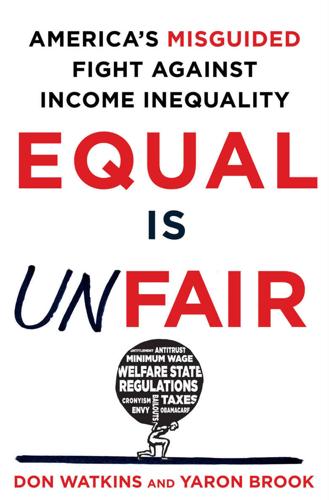
Equal Is Unfair: America's Misguided Fight Against Income Inequality
by
Don Watkins
and
Yaron Brook
Published 28 Mar 2016
Productivity growth, the main driver of wage growth, slowed as early as the mid-1960s and with a few brief exceptions remained sluggish until the 1990s.26 Economic growth was non-existent, with repeated recessions and high unemployment during the 1970s. And because the combination of inflation, stagnation, and unemployment was a phenomenon unanticipated by mainstream Keynesian economists, a new term was coined: stagflation. Jimmy Carter expressed the bleakness of the time in his famous “malaise” speech, claiming that America was suffering from “a crisis in confidence.” Instead of sharing Carter’s sense of defeat, Americans rebelled. The rebellion began with a tax revolt. In 1978, California voters passed Proposition 13, a severe limit on property taxes, by a margin of 2 to 1.
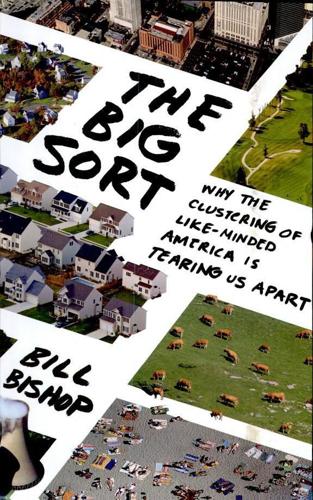
The Big Sort: Why the Clustering of Like-Minded America Is Tearing Us Apart
by
Bill Bishop
and
Robert G. Cushing
Published 6 May 2008
[back] *** *The question of individual competence seems a permanent part of our political critique and an ever-ready explanation for our politics—from the sweater-wearing (and supposedly incompetent) Jimmy Carter to the bumbling Ronald Reagan to the dallying Bill Clinton to the Katnna- and WMD-surpnsed George W. Bush. [back] *** *For the record, Carter never used the word "malaise" in his July 15, 1979, speech. [back] *** *In a 1997 paper, political scientists Geoffrey C. Layman and Edward G. Carmines ("Cultural Conflict in American Politics: Religious Traditionalism, Postmaterialism, and U.S. Political Behavior," Journal of Politics 59, no 3 [August 1997]. 751–77) noted that even as "recent trends indicate that American politics is becoming more 'cultural' or 'Value-based' . . . the leading account of cultural conflict in advanced industrial democracies—Ronald Inglehart's theory of Postmaterialism—has received little attention from students of American politics" (p. 751).
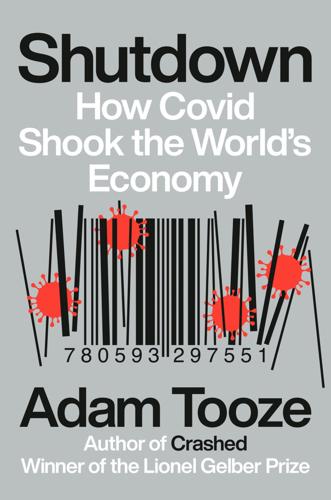
Shutdown: How COVID Shook the World's Economy
by
Adam Tooze
Published 15 Nov 2021
Greer, “Xi Jinping in Translation: China’s Guiding Ideology,” Palladium, May 31, 2019. 71. USTR, “Investigation: Technology Transfer, Intellectual Property, and Innovation”; ustr.gov/issue-areas/enforcement/section-301-investigations/section-301-china/investigation. 72. K. Mattson, “What the Heck Are You Up To, Mr. President?”: Jimmy Carter, America’s “Malaise,” and the Speech That Should Have Changed the Country (Bloomsbury USA, 2010). 73. D. Kurtzleben, “Rep. Alexandria Ocasio-Cortez Releases Green New Deal Outline,” All Things Considered, NPR, February 7, 2019. 74. R. O. Paxton, “I’ve Hesitated to Call Donald Trump a Fascist, Until Now,” Newsweek, January 11, 2021. 75.
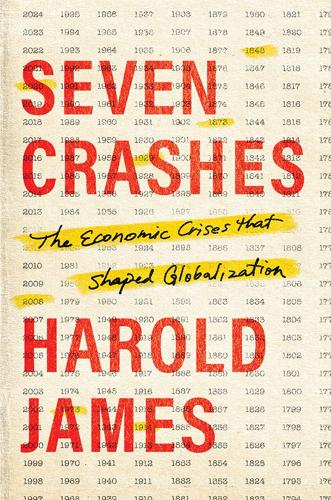
Seven Crashes: The Economic Crises That Shaped Globalization
by
Harold James
Published 15 Jan 2023
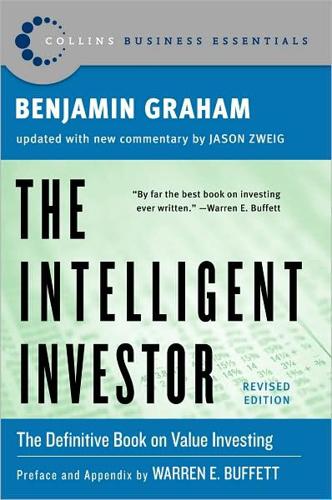
The Intelligent Investor (Collins Business Essentials)
by
Benjamin Graham
and
Jason Zweig
Published 1 Jan 1949
(See the commentary on Chapter 4.) 3 For more insights into this behavioral pitfall, see Eldar Shafir, Peter Diamond, and Amos Tversky, “Money Illusion,” in Daniel Kahneman and Amos Tversky, eds., Choices, Values, and Frames (Cambridge University Press,2000), pp. 335–355. 4 That year, President Jimmy Carter gave his famous “malaise” speech, in which he warned of “a crisis in confidence” that “strikes at the very heart and soul and spirit of our national will” and “threatens to destroy the social and the political fabric of America.” 5 See Stanley Fischer, Ratna Sahay, and Carlos A. Vegh, “Modern Hyper- and High Inflations,” National Bureau of Economic Research, Working Paper 8930, at www.nber.org/papers/w8930. 6 In fact, the United States has had two periods of hyperinflation.
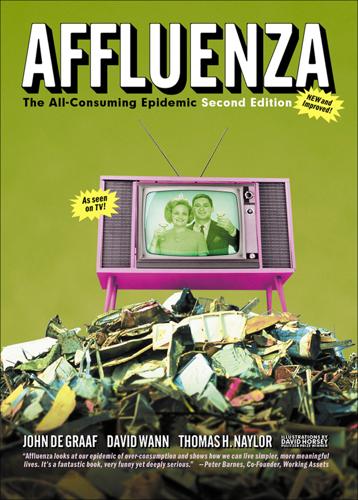
Affluenza: The All-Consuming Epidemic
by
John de Graaf
,
David Wann
,
Thomas H Naylor
and
David Horsey
Published 1 Jan 2001
“Rather than foster conservation,” writes historian Gary Cross, “President Gerald Ford supported business demands for more nuclear power plants, offshore oil drilling, gas leases and drilling on federal lands,” as well as “the relaxation of clean air standards.”15 CARTER’S LAST STAND But Ford’s successor, Jimmy Carter, disagreed, promoting conservation and alternative energy sources. Carter went so far as to question the American dream in his famous “national malaise” speech of 1979. “Too many of us now tend to worship self-indulgence and consumption,” Carter declared. It was the last courageous stand any American president ever made against the spread of affluenza. And it helped bring about Carter’s defeat a year later. “Part of Jimmy Carter’s failure,” says historian David Shi, “was his lack of recognition of how deeply seated the high, wide, and handsome notion of economic growth and capital development had become in the modern American psyche.”16 The Age of Affluenza had begun.
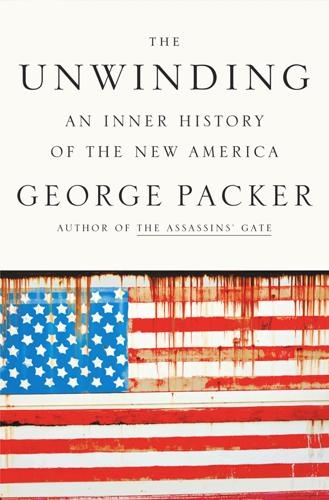
The Unwinding: An Inner History of the New America
by
George Packer
Published 4 Mar 2014
Growing up, he had no clear political views. In 1976 he was inspired when Ronald Reagan spoke at the Republican convention about “the erosion of freedom that has taken place under Democratic rule in this country”; in 1979, when Jimmy Carter diagnosed a “crisis of confidence” in America, warning that “too many of us now tend to worship self-indulgence and consumption,” Connaughton defended what came to be called the “malaise” speech in an opinion piece for The Tuscaloosa News. He was a swing voter until he moved to Washington; he also revered the Kennedys. Once, in 1994, he attended a fundraiser at Hickory Hill for Kathleen Kennedy Townsend, with Ethel and other Kennedys graciously welcoming every guest on the front lawn of the manor.
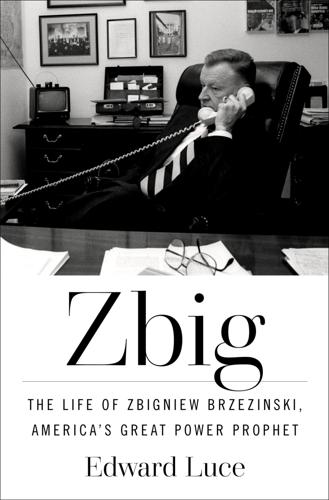
Zbig: The Life of Zbigniew Brzezinski, America's Great Power Prophet
by
Edward Luce
Published 13 May 2025
Kennedy had not raised human rights in his meeting with the shah. Brzezinski offered to let the cable fall out of his pocket somewhere along Pennsylvania Avenue. “Carter was delighted by the idea,” he wrote.86 The record states that it was Carter who lost Iran. In late 1979, he did not have the luxury of second-guessing his administration’s blunders. The previous July, he had given his so-called malaise speech—though that word did not feature. His portentous address followed several days of Camp David seminars with diverse groups of scholars, civic activists, spiritual figures, and political advisors in what was a prolonged spell of secluded reflection.
…
“Memorandum from the White House Chief of Staff (Jordan) to President Carter,” n.d., in Foreign Relations of the United States, 1977–1980, vol. 11, part 1: Iran: Hostage Crisis, November 1979–September 1980, edited by Linda Qaimmaqami (Washington, DC: US Government Publishing Office, 2020), document 56, https://history.state.gov/historicaldocuments/frus1977-80v11p1/d56. 83. NSA diary, September 25, 1979. 84. T. R. Reid and David S. Broder, “Kennedy Attack on Shah Brings Critical Barrage,” Washington Post, December 4, 1979. 85. NSA diary, December 6, 1979. 86. NSA diary, January 3, 1980. 87. Jimmy Carter, “Address to the Nation on Energy and National Goals: ‘The Malaise Speech,’ ” July 15, 1979, The American Presidency Project, https://www.presidency.ucsb.edu/node/249458. 88. Rafshoon, interview with author, February 2021. 89. Brzezinski, NSC Weekly Report 122, December 21, 1979, box III: 9.6, Brzezinski Papers, LoC. 90. NSA diary, November 22, 1979. 91.
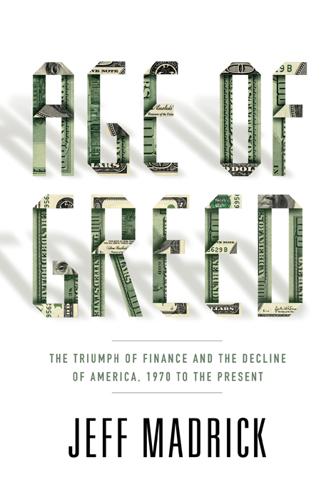
Age of Greed: The Triumph of Finance and the Decline of America, 1970 to the Present
by
Jeff Madrick
Published 11 Jun 2012
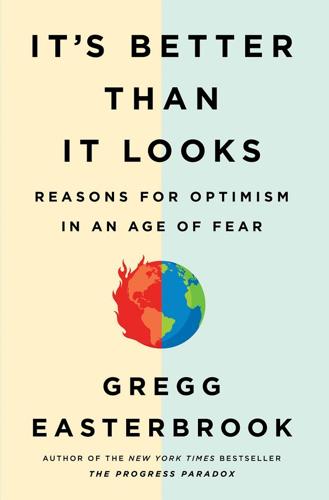
It's Better Than It Looks: Reasons for Optimism in an Age of Fear
by
Gregg Easterbrook
Published 20 Feb 2018
Which economy would you rather live in, the America of 1979 or of 2014? The America of 2014 was not only more prosperous but more equitable. Consider another comparison to 1979. In that year the economy was stagnant yet inflation was high, a stifling combination; President Jimmy Carter gave a downbeat, nationally televised address known to history as the “malaise speech”; the most-talked-about serious book, The Culture of Narcissism by Christopher Lasch, bore the subhead American Life in an Age of Diminished Expectations. Adjusting to current dollars and for population growth, we would expect that today’s US GDP would be about 40 percent larger than in 1979.
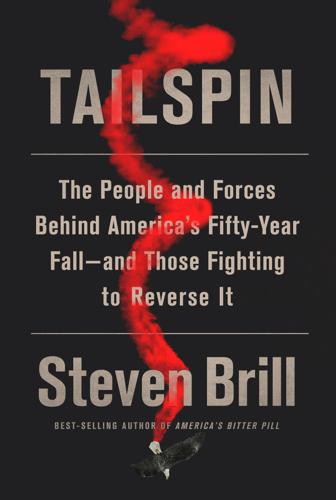
Tailspin: The People and Forces Behind America's Fifty-Year Fall--And Those Fighting to Reverse It
by
Steven Brill
Published 28 May 2018
Americans, he famously said, should “ask not what your country can do for you—ask what you can do for your country.” On January 20, 2017, Donald Trump reminded Americans that “at the center” of the movement that had swept him into office “is a crucial conviction: that a nation exists to serve its citizens.” In between those two inaugurals, in 1979, President Jimmy Carter—addressing the nation with what came to be called his “malaise” speech, although he never used that word—scolded Americans for failing to answer Kennedy’s call. “In a nation that was proud of hard work, strong families, close-knit communities, and our faith in God, too many of us now tend to worship self-indulgence and consumption,” he said.
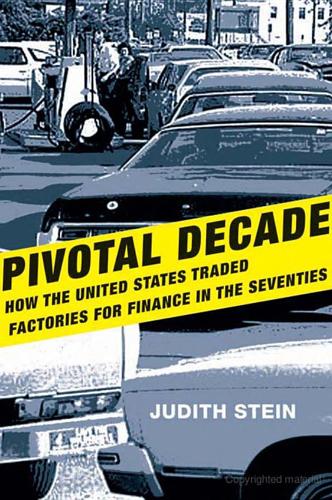
Pivotal Decade: How the United States Traded Factories for Finance in the Seventies
by
Judith Stein
Published 30 Apr 2010
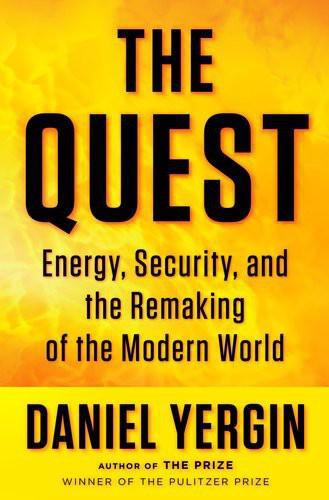
The Quest: Energy, Security, and the Remaking of the Modern World
by
Daniel Yergin
Published 14 May 2011
The Iranian Revolution led to chaos in the oil market, rapid increases in prices, new gas lines, and a second oil shock, and the Carter administration started to come unwound. In July 1979, just a few weeks after announcing the bold solar goal atop the White House, President Carter delivered what became known as the “malaise speech,” warning that the nation faced a crisis of confidence and a “crisis of the American spirit.” His own response was to fire much of his cabinet and announce that he was now putting most of his energy chips, and billions of dollars, into synfuels—liquids made either from coal or oil shale—as the way out of the energy crisis.
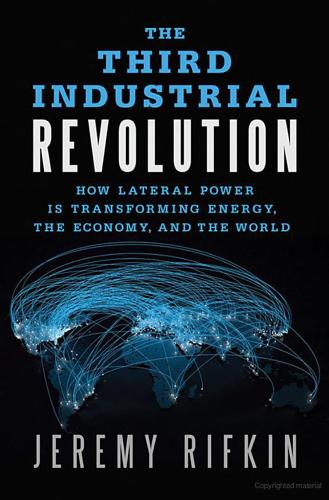
The Third Industrial Revolution: How Lateral Power Is Transforming Energy, the Economy, and the World
by
Jeremy Rifkin
Published 27 Sep 2011
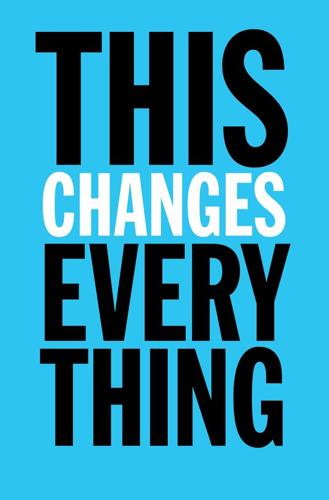
This Changes Everything: Capitalism vs. The Climate
by
Naomi Klein
Published 15 Sep 2014
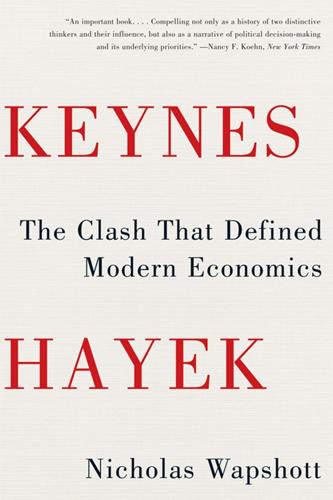
Keynes Hayek: The Clash That Defined Modern Economics
by
Nicholas Wapshott
Published 10 Oct 2011
In apparent contradiction, the act also directed the president and Congress to balance both the budget and the balance of trade. Like Canute93 commanding the tides, legislators were proving their impotence. Wishful thinking and majorities in Congress were not enough to beat stagflation. Nor was Carter the person to lead America in a new and painful direction, as was evident from his most conspicuous venture into telling unpalatable truths, the “malaise” speech suggesting the country was suffering from a “crisis that strikes at the very heart and soul and spirit of our national will.”94 The fact that stagflation was also stalking the rest of the world’s leaders, such as the hapless British prime minister James Callaghan, was of little compensation to Carter, for whom time was fast running out.

Reaganland: America's Right Turn 1976-1980
by
Rick Perlstein
Published 17 Aug 2020